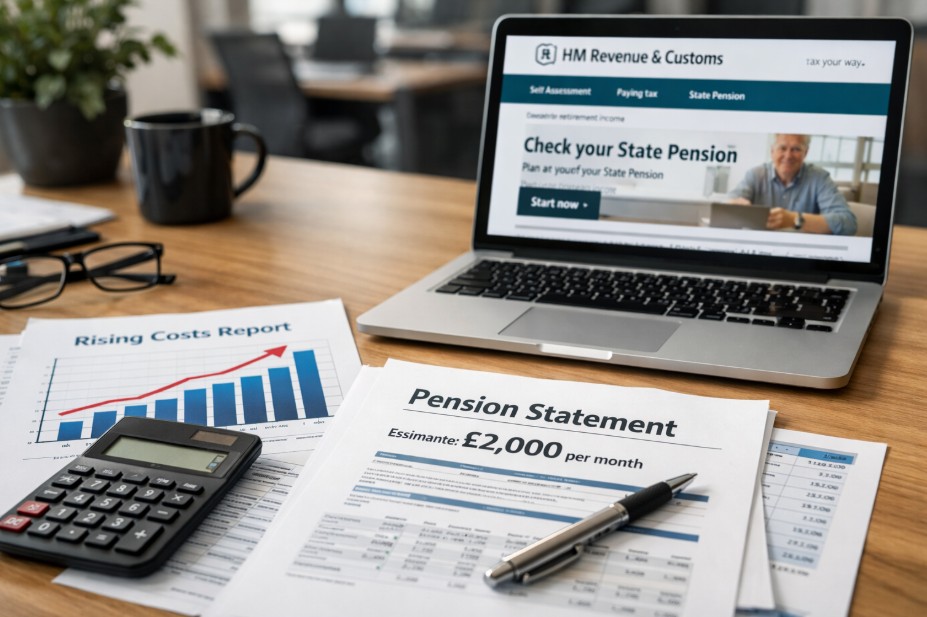Table of Contents
ToggleAre Christmas parties tax-deductible in the UK? Can businesses claim festive event expenses without triggering tax charges?
As the end of the year approaches, businesses across the UK begin planning festive celebrations for their teams. For many, the annual Christmas party is a long-standing tradition, offering a chance to show appreciation and boost team morale. But while the mulled wine and seasonal cheer may seem simple on the surface, the tax implications of hosting such an event are often misunderstood.
The HMRC Christmas party allowance, also known as the annual event exemption, allows UK businesses to provide tax-free entertainment to their employees. However, this benefit is subject to strict conditions, and misunderstanding them could result in an unexpected tax bill for both the business and its staff. This detailed guide explains how the allowance works, who qualifies, how to calculate it, and how businesses can remain compliant while hosting an end-of-year celebration.
What Is the HMRC Christmas Party Allowance and How Does It Work?

The HMRC Christmas party allowance is not a direct payment or annual claim, it is a tax exemption that permits employers to host annual events for their staff without incurring tax liabilities, provided the cost per attendee does not exceed £150 (including VAT). This exemption covers the total cost of the event, such as venue hire, food, drinks, entertainment, transport, and even accommodation.
If the conditions are met, the event does not count as a benefit in kind, meaning employees are not taxed on the cost of attending, and the employer can treat it as an allowable business expense.
It’s important to note that this is not an allowance in the traditional sense, it is an exemption, meaning that once the event qualifies, it can be treated as tax-free. However, if even one of the conditions is not met, the entire cost becomes taxable to the employee and subject to employer National Insurance Contributions.
Who Is Eligible to Benefit from the Christmas Party Tax Exemption?
The exemption is designed specifically for current employees. That includes full-time and part-time staff, as well as directors who are also employees of the company. In some cases, former employees, such as retirees, can be invited and covered under the exemption.
Spouses or partners of employees may also attend, and their costs are included in the £150 per head figure. For example, if an employee brings a guest, the total tax-free cost allowed for both would be £300.
However, sole traders and self-employed individuals without any employees cannot claim the exemption if they are the only person attending the event. The rule exists to reward and entertain staff, not to provide tax relief for individual business owners.
What Conditions Must Be Met to Qualify for the Exemption?
HMRC outlines three key conditions that must be met for a staff event to qualify as tax-exempt:
- It must be an annual event: This includes Christmas parties, summer barbecues, or other recurring social functions held once a year.
- It must be open to all staff: Either all employees must be invited, or all employees at a particular location, if the business operates across multiple sites.
- The total cost must not exceed £150 per person: This includes all expenses related to the event, VAT, transport, accommodation, and entertainment.
If any of these conditions are not met, the exemption does not apply. Most importantly, if the cost goes even £1 over the £150 limit, the entire cost becomes taxable, not just the excess.
That means employees would be liable to pay tax on the full amount, and employers may need to report the benefit through a P11D form or include it in a PAYE Settlement Agreement (PSA).
How Should the £150 Per Head Be Calculated?

The calculation must include all expenses incurred in hosting the event and must be divided by the total number of attendees, including guests. This ensures a fair cost per head and confirms whether the event falls within the tax-free limit.
Here’s an example to illustrate how this works:
| Total Event Cost | Number of Attendees | Cost Per Head | Tax-Free Status |
| £1,500 | 10 | £150 | Yes |
| £1,800 | 10 | £180 | No – Fully Taxable |
| £3,000 | 20 (10 staff + 10 guests) | £150 | Yes |
The £150 limit is not an allowance. If the event costs £151 per head, none of the cost is exempt, the full amount is treated as a benefit in kind.
Are Directors Allowed to Claim the Christmas Party Exemption?
Yes, but only in certain circumstances. If a director is the only employee of the business, they can still claim the exemption, provided the event is genuinely for staff purposes and meets the qualifying conditions.
If the director invites a guest (such as a spouse), the total exempt amount becomes £300, assuming it is within the per-head cost limit.
However, HMRC scrutinises events involving only directors more closely. If there is no broader employee base, the event might be considered personal entertainment, which is not tax-deductible.
Can Multiple Annual Events Be Claimed Under the Exemption?
Yes, businesses can host more than one annual event, and still benefit from the exemption, as long as the combined cost does not exceed £150 per head across all events in the tax year.
Here’s a breakdown:
| Event | Cost Per Person | Total to Date | Exemption Applies? |
| Summer Social | £60 | £60 | Yes |
| Christmas Party | £80 | £140 | Yes |
| New Year Gathering | £40 | £180 | No – Choose one event |
If the total goes above £150, the employer must choose which event(s) to exempt. The others become fully taxable.
What Expenses Can Be Included in the Allowance?

The £150 per head figure includes all costs associated with the event.
These may include:
- Food and drink
- Venue hire
- Entertainment
- Transport to and from the event
- Overnight accommodation
- VAT on all the above
Employers should keep thorough records of all receipts and invoices to support their calculation and prove the event qualifies if HMRC reviews the claim.
What Happens if the Rules Are Not Followed?
Failure to meet the qualifying conditions means the entire cost of the event becomes a taxable benefit in kind. This must be reported either through a P11D form for each employee or paid by the employer via a PAYE Settlement Agreement (PSA). The result is additional tax liability for both the business and its employees.
This can be a costly mistake, so employers are advised to plan ahead, track all expenses carefully, and calculate the per-head cost with precision.
Can Businesses Reclaim VAT on Christmas Party Costs?
Yes, VAT can usually be reclaimed on staff party expenses, provided the event is solely for the benefit of employees. If non-employees such as clients or contractors are invited, a portion of the VAT may not be recoverable. HMRC typically allows full recovery if all guests are staff members or their invited partners.
What Should Employers Do to Stay Compliant?
To ensure your business stays on the right side of HMRC rules:
- Keep detailed records of event costs, guest lists, and per-head calculations
- Check that all three exemption conditions are met
- Ensure the event is genuinely open to all staff and is part of an annual tradition
- If you host multiple events, monitor the cumulative cost to ensure it stays within the £150 limit
Professional advice from an accountant or tax adviser may also help clarify whether your event qualifies.
Conclusion: How Can Businesses Make the Most of HMRC’s Christmas Party Exemption?
The HMRC Christmas party allowance offers a valuable opportunity for employers to show appreciation for their teams without incurring additional tax burdens.
However, to take full advantage, businesses must ensure they comply with all three conditions: the event must be annual, open to all staff, and cost no more than £150 per person.
Used correctly, this exemption supports positive company culture while maintaining tax efficiency. Misunderstood, it can lead to unexpected liabilities.
For UK startups and established companies alike, understanding and applying the rules correctly ensures the festive season remains joyful, both for morale and for the books.
Frequently Asked Questions (FAQs)
Is VAT reclaimable on staff Christmas party expenses?
Yes, VAT can usually be reclaimed if the event is exclusively for staff. If guests or clients attend, partial VAT recovery rules apply.
Can non-employees attend a tax-free Christmas party?
Yes, but their attendance must be as guests of employees, and their costs must be included in the per-head calculation.
Does the £150 per head include VAT and all other costs?
Yes, the limit includes all associated costs, venue, food, drinks, entertainment, transport, accommodation, and VAT.
What happens if the event cost goes over £150 per person?
The entire event becomes a taxable benefit, and employers may need to report this on employees’ P11Ds or settle it through a PSA.
Can virtual Christmas parties qualify for the exemption?
Yes, HMRC confirmed that virtual events can qualify, provided they meet the same conditions and are open to all employees.
How should the cost per person be calculated for HMRC?
Divide the total cost of the event by the number of attendees (including guests) to determine the cost per head.
Is the exemption available if only directors attend the event?
Possibly. If the directors are employees and the event is considered staff entertainment, it may qualify. However, HMRC may consider it personal entertainment if no other staff are involved.




